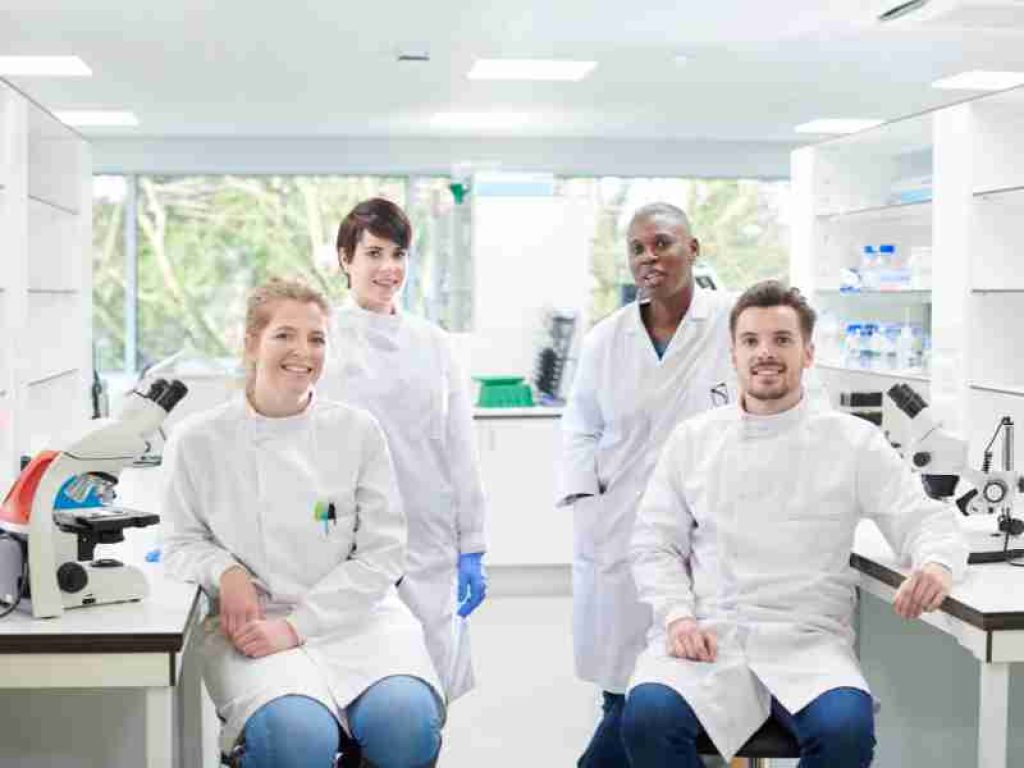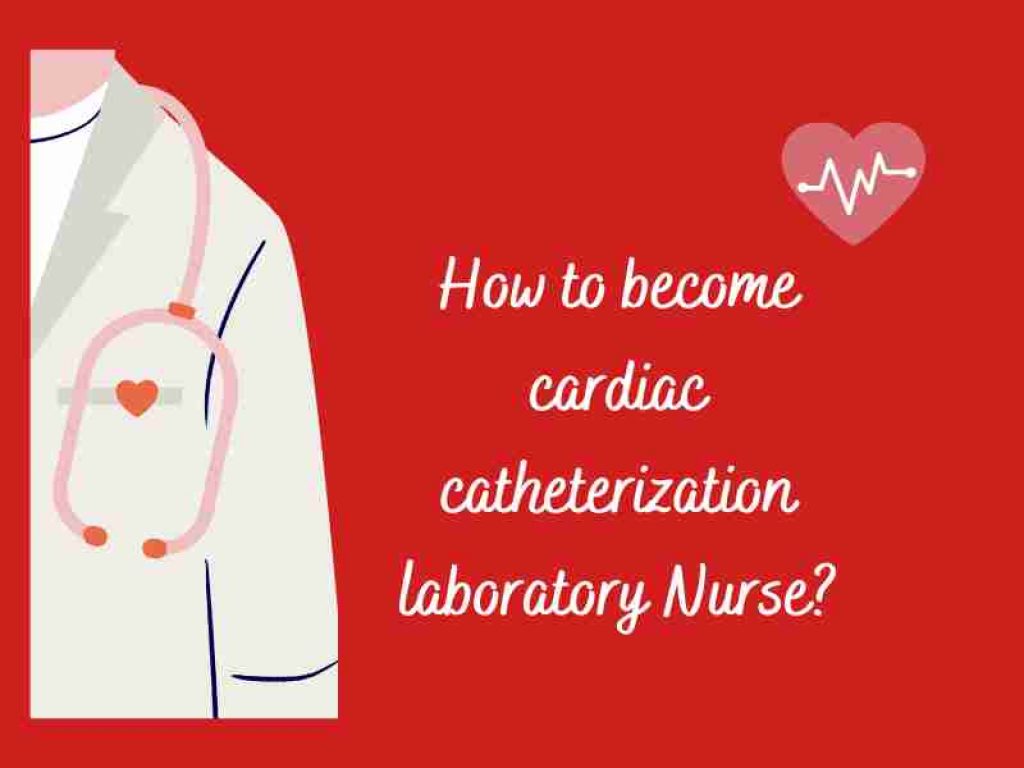
How To Become Cardiac Cath Lab Nurse?
Learn the steps to become a cardiac cath lab nurse, including the required education, training, and skills needed for this specialized nursing role.
What is a Cardiac cath lab nurse?
One type of nurse in the medical field is the cardiac cath lab nurse, who works alongside cardiologists and cardiac surgeons during specialized heart surgeries. Cardiac catheterization, a procedure involving the insertion of a catheter into a heart channel or chamber to diagnose cardiovascular issues, is one of the operations that medical personnel often provide.

Nurses working in cardiac catheterization laboratories have opportunities to expand their professional knowledge and participate in additional techniques that improve the quality of coronary artery imaging. It is common practice for cardiac catheterization procedures in hospitals, and modern technology and equipment help nurses do their duties in these hospital catheterization laboratories.
What Does A Cardiac Cath Lab Nurse Do?
A cath lab’s care team wouldn’t be complete without the nursing staff. It is primarily their responsibility to aid cardiologists during catheterization procedures. Cath lab nurses support and supervise cardiac patients recovering from catheterization, collaborating closely with physicians to ensure a speedy recovery. They check people out beforehand and monitor their health throughout the operation. Cardiovascular cath lab nurses are responsible for the following:
- Ensure the patient’s consent forms are filled out and filed in their medical record.
- Sterilizing and shaving the skin near the intended catheter insertion site is part of the pre-procedure preparation for patients.
- Keeping an eye on the patient’s degree of sedation before, during, and after catheterizations to make sure they don’t have an adverse response.
- To aid in performing interventional procedures such as balloon angioplasty, stent insertion, and rotation.
- Keeping a close eye on patients after catheterization to detect any infections or negative reactions.
- Help families properly transition out of the hospital with documents containing detailed instructions on medications, physical activities, and what your diet should look like.
- Including procedure-related details in patient records.
What are the skills of a Cardiac cath lab Nurse?
The Skills of a Cardiac Cath Lab NurseIn the fast-paced world of healthcare, many specialized fields require a unique set of skills and knowledge. One such field is the cardiac catheterization laboratory, commonly known as the cath lab. This specialized unit is responsible for performing diagnostic tests and interventional procedures on patients with cardiovascular conditions. At the heart of this team is the cardiac cath lab nurse, whose skills and expertise are essential in delivering high-quality patient care. This blog post will explore the skills that make a cardiac cath lab nurse an invaluable asset in the healthcare industry.
Technical Competence:
A cardiac cath lab nurse must possess a high level of technical competence to perform a range of procedures, including cardiac catheterizations, angioplasties, stent placements, and electrophysiology studies. They must be well-versed in operating and maintaining various equipment such as angiography machines, intracardiac echocardiography devices, and hemodynamic monitoring systems.
Critical Thinking:
The ability to think critically and make quick decisions is crucial in the cath lab. Cardiac cath lab nurses must be able to analyze complex data, assess the patient’s condition, and make appropriate interventions in emergencies. They must also be skilled in interpreting diagnostic tests and identifying abnormalities that may require immediate attention.
Attention to Detail:
The cath lab is a high-stakes environment where even the smallest oversight can have serious consequences. Cardiac cath lab nurses must have a keen eye for detail and be able to accurately document patient information, medication administration, and procedural steps. They must also ensure that all necessary supplies and equipment are readily available and properly sterilized.
Communication Skills:
Effective communication is essential in any healthcare setting; the cath lab is no exception. Cardiac cath lab nurses must be able to communicate clearly and concisely with patients, their families, and other healthcare team members. They must be able to provide education and support to patients before, during, and after procedures, as well as collaborate with physicians and other healthcare professionals to ensure seamless patient care.
Adaptability:
The cath lab environment can be unpredictable, with procedures varying in complexity and urgency. Cardiac cath lab nurses must be adaptable and flexible, able to handle multiple tasks simultaneously and quickly shift priorities as needed. They must also be prepared to work extended hours and be on-call, as emergencies can arise anytime.
Compassion and Empathy:
While technical skills are essential, cardiac cath lab nurses must also possess a deep sense of compassion and empathy. Many patients undergoing cardiac procedures may be anxious or scared, and the cath lab nurse plays a vital role in providing emotional support and reassurance. They must be able to connect with patients personally, easing fears and offering comfort throughout the procedure.
Teamwork:
The cath lab is a collaborative environment where various healthcare professionals work together to provide comprehensive patient care. Cardiac cath lab nurses must be team players, able to effectively communicate and collaborate with physicians, technicians, and other healthcare team members. They must be able to anticipate the needs of others, provide assistance when needed, and maintain a positive and supportive attitude.
What Are The Subfields Of Cardiac Cath Lab Nurses?
Let’s dive deeper into the subfields of the cardiac cath lab nursing and explore the various aspects of this specialized field.
Pre-procedure Assessment:
Before any cardiac catheterization procedure, a cardiac cath lab nurse is responsible for conducting a thorough patient assessment. This includes evaluating the patient’s medical history, current medications, and potential allergies. The nurse will also perform a physical examination to assess the patient’s overall health status and identify any specific risks or concerns that may need to be addressed during the procedure.
Patient Education:
Patient education is crucial to a cardiac cath lab nurse’s role. These nurses work closely with patients and their families, providing detailed information about the procedure, its purpose, and what to expect before, during, and after the catheterization. They ensure that patients are well-informed, understand the risks and benefits, and are physically and emotionally prepared for the procedure.
Procedural Assistance:
During the cardiac catheterization procedure, the nurse plays a vital role in assisting the cardiologist and other healthcare professionals. They help prepare and position the patient, as well as the sterile draping of the surgical field. They also monitor the patient’s vital signs, administer medications as required, and assist with any invasive procedures, such as sheath removal or wound care.
Intra-procedural Monitoring:
Cardiac cath lab nurses are responsible for closely monitoring patients throughout the procedure. This includes continuously assessing the patient’s vital signs, electrocardiogram (ECG) readings, and hemodynamic status. They are trained to identify any changes or complications that may arise during the procedure and take prompt action to ensure patient safety and well-being.
Post-procedure Care:
After the cardiac catheterization procedure is complete, the nurse provides post-procedure care to the patient. This involves monitoring vital signs, assessing the patient’s recovery, and managing any potential complications. They also educate the patient on self-care instructions, medication management, and any necessary lifestyle modifications to promote optimal recovery and prevent future cardiovascular issues.
Sedation and Pain Management:
Patients undergoing cardiac catheterization may often require sedation or pain management. Cardiac cath lab nurses are trained to administer conscious sedation and closely monitor patients during the procedure. They ensure patients are comfortable, pain-free, and safe throughout the process.
Emergency Response:
While rare, cardiac catheterization procedures can sometimes lead to emergencies. Cardiac cath lab nurses are trained to respond quickly and efficiently in such cases. They are skilled in performing advanced cardiovascular life support (ACLS) techniques and are well-versed in emergency protocols to ensure the best possible outcome for the patient.
How to become cardiac cath lab Nurse?

Education:
To become employed in a cardiac cath lab, it is necessary to receive the right training and gain experience. Obtaining a diploma, associate’s degree, or bachelor’s degree from a recognized institution is the first step toward entering nursing. NCLEX-RN certification is also required of all applicants.
Developing one’s expertise and network:
Once they have earned their RN credentials, candidates must have prior experience working in a trauma or cardiac care unit. Strong connections with cardiologists and intensive care specialists are critical for RNs working in cardiac cath labs. These relationships are essential for career success.
Certifications:
Nurses who want to work in a cardiac catheterization laboratory must be registered nurses and hold basic life support and advanced cardiac life support certification. They’re strongly encouraged to pursue cardiology vascular nursing certification.
However, it is not necessary. To earn RN licensure in the United States, you need to pass an exam administered by the National Council Licensure Examination for Registered Nurses (NCLEX-RN) and complete at least 1,500 hours of clinical experience.
- Be a registered nurse with a valid license in 50 United States or its possessions.
- Be a registered nurse with at least two years of experience
- You must have at least two thousand (2,000) clinical experiences in cardiovascular nursing within the last three years.
- Have completed 30 hours (or more) of continuing educational activities related to cardiovascular care within the last three (3) year(s).
Cardiovascular cath lab nurses can get the CCRN credential to increase their patient care knowledge. To become a certified critical care nurse (CCRN), nurses must first achieve certain criteria. A minimum of 2,000 hours of direct care experience with acute or critically ill adult patients is required in addition to 5 years of experience as a registered nurse or advanced practice registered nurse to be eligible for this credential.
At least 144 hours must have been put in during the most recent calendar year. Working in a hospital or a cardiac care facility may need special accreditation. This is a key inquiry to make when searching for qualified candidates for the position of cath lab nurse.
Maintaining current CEUs:
Cath lab nurses in certain states need to fulfill continuing education unit (CEU) requirements to keep their licenses valid. Most states (91) require these nurses to keep updated with continual education every two years, though a small number of states (13) provide exemptions. Renewal of a license requires continuing education credits and contact hours focusing on cardiac care.
What are the advantages of a cardiac cath lab nurse?
With some flexibility, one of the best things about this field of work is the somewhat regular hours. While four eight-hour shifts per day are typical for cath lab nurses, Elie notes that schedules may need to be adjusted based on the day’s caseload. Working weekends on a rotative basis or signing up for on-call shifts is also frequent, but it varies by facility.
Which facilities hire Cardiac cath, lab nurses?
Catheterization procedures are performed by registered nurse (RN) technicians at hospitals and freestanding cardiac centers. RNs who perform these procedures typically work eight to ten-hour days and may be required to work additional time if they perform a procedure outside normal business operating times.
How much does a Cardiac Cath Lab Nurse make?
According to the Bureau of Labor Statistics (BLS), the median annual wage for registered nurses, which includes cardiac cath lab nurses, was $75,330 as of May 2020. However, it’s important to note that specific salary data for cardiac cath lab nurses may not be readily available. Specialized nursing roles tend to command higher salaries due to the required advanced knowledge and skills.
What is the career Outlook for a cardiac cath lab nurse?
The career outlook for cardiac cath lab nurses is promising, with a steady demand for these skilled professionals. As the population ages and cardiovascular diseases continue to be prevalent, the need for cardiac catheterization procedures is expected to rise. This, in turn, leads to an increased demand for qualified cardiac cath lab nurses. According to the Bureau of Labor Statistics, the employment of registered nurses, which includes cardiac cath lab nurses, is projected to grow by 7% from 2019 to 2029, faster than the average for all occupations.
FAQ’s
What is a cardiac cath lab nurse?
A cardiac cath lab nurse is a specialized registered nurse who assists in cardiac catheterization procedures, which involve the insertion of a catheter into the heart to diagnose and treat various heart conditions.
What are the subfields of cardiac cath lab nursing?
The subfields of cardiac cath lab nursing include:
– Interventional Cardiology: Assisting in procedures such as angioplasty and stenting.
– Electrophysiology: Assisting in procedures related to the heart’s electrical system, such as ablation and pacemaker implantation.
What are the educational requirements to become a cardiac cath lab nurse?
To become a cardiac cath lab nurse, you typically need to complete a registered nursing (RN) program and obtain a nursing license. Additional certifications in areas such as critical care or cardiac nursing may be beneficial.
How can I gain experience in cardiac cath lab nursing?
Gaining experience in cardiac cath lab nursing can be achieved through on-the-job training or by seeking opportunities for clinical rotations or internships in cardiac cath labs during nursing school.







